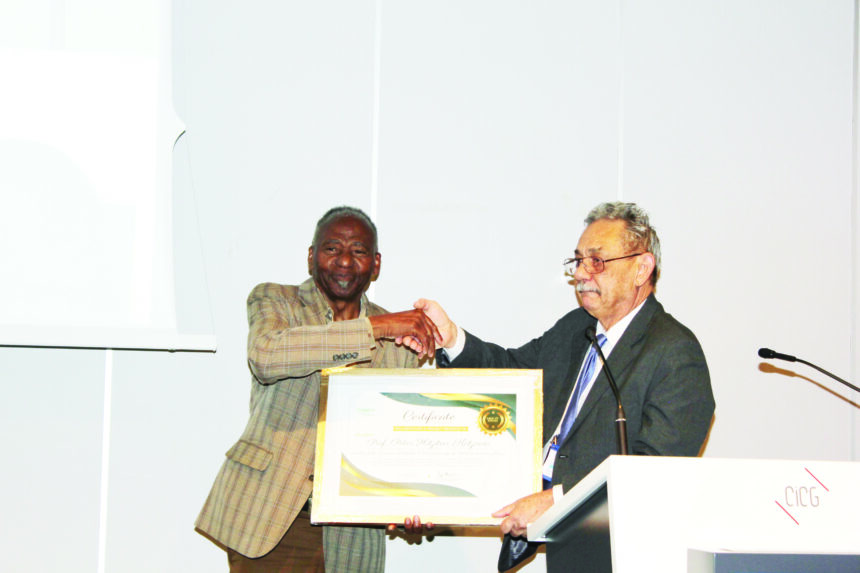George Sanzila
GENEVA – National Assembly Peter Katjavivi has implored parliaments to enact legislation that establish ethical standards for science, technology and innovation.
The Speaker made this call in his final speech to hundreds of delegates gathered for the 149thInter-Parliamentary Union (IPU) Assembly in Geneva, Switzerland recently. He was contributing to a debate on the overall theme of the assembly, entitled “Harnessing science, technology and innovation (STI) for a more peaceful and sustainable future,” Katjavivi said.
According to Katjavivi, legal and ethical standards in science and technology are important to ensure that science, technology and innovation are used in ways that are beneficial to society.
“Ethical considerations are integral to the development and implementation of ethical frameworks for science, technology and innovation. Science, technology and innovation play a central role in human development and must be seen as a primary mechanism for achieving the Sustainable Development Goals. As the supreme law-making institution and agents of people’s well-being, parliaments’ main responsibility is to ensure that the benefits of science, technology and innovation reach all segments of our society,” he noted.
The Speaker further bemoaned the widening digital divide, urging parliaments to be at the forefront of narrowing the gap by collaborating more and harmonising digital legislation.
“As we all know, the digital gap is now a worldwide concern, and this is an opportune time to unpack it. Therefore, as parliaments it must be our primary objective to work together to build cooperative projects, unify digital regulations and standards, and establish frameworks for cross-border digital trade and cooperation through international collaboration, global partnerships and funding,” appealed the speaker.
He also called for the establishment of dedicated science and technology committees at parliaments and strengthening the capacities of parliamentary research services, which he believes are integral to the realisation of scientific evidence use in lawmaking and oversight. The Speaker further used the platform to bid farewell to the IPU Assembly. This assembly marks Katjavivi’s final appearance as speaker of the National Assembly as he is set to retire in March 2025.
He highlighted the role played by Namibia in the organisation.
“It has been a privilege for the past 10 years to lead the Namibian delegation to the IPU Assemblies and Related Meetings. As a close IPU family, Namibia has played an active part in promoting IPU’s global vision. I remember, that when my predecessor the late Theo-Ben Gurirab took the IPU presidency in October 2008, the first question he asked former secretary general Anders Johnson was about the IPU Strategic Plan. We did not have one at that time, and as we move on we produced the first ever IPU Strategy 2012 – 2017 titled ‘Better parliaments, stronger democracies’,” said Katjavivi to loud applause.
He is the current vice president of the IPU task force addressing the Russia-Ukraine conflict.
The IPU Assembly is a global organisation of parliaments around the world that brings together lawmakers to identify international challenges and make recommendations for action.
*George Sanzila works for the National Assembly in the Division: Research, Information, Publications and Editorial Services.



